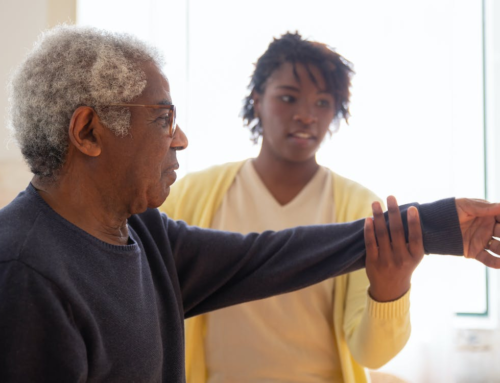Our hands are intricate tools that we use in almost every aspect of our daily lives. From typing on a keyboard to cooking a meal, our hands play a crucial role in our overall well-being. However, many of us only think about hand care when faced with an injury or discomfort. In this blog, we will explore practical advice and tips for maintaining hand health at home, highlighting the importance of proactive care. Additionally, we will discuss the role of physical therapists for hands and how they can contribute to hand health maintenance.
Understanding the Importance of Hand Health
Before delving into practical tips, it’s essential to understand why hand health matters. Our hands consist of complex structures such as bones, muscles, tendons, and ligaments. They enable us to perform a wide range of tasks, making them susceptible to strain and injury. Neglecting hand health can lead to conditions like carpal tunnel syndrome, arthritis, and tendonitis, affecting our ability to carry out daily activities.
Hand Health Maintenanceat Home

Regular Hand Exercises:
- Perform simple hand exercises to promote flexibility and strength.
- Squeeze a stress ball or practice finger stretches to maintain dexterity.
Mindful Hand Movements:
- Be conscious of hand movements during repetitive tasks.
- Take breaks to stretch and rest your hands during activities like typing or crafting.
Proper Ergonomics:
- Ensure your workspace is ergonomically designedto reduce strain.
- Use supportive devices like ergonomic keyboards and mouse pads.
Warm-up and Cool-down:
- Treat your hands like any other part of your body—warm up before engaging in intense activities and cool down afterward.
- Soak your hands in warm water or use warm compresses to relieve tension.
Moisturize:
- Keep your hands hydrated by using a good-quality moisturizer.
- Pay extra attention to the cuticles to prevent painful hangnails.
Maintain a Healthy Lifestyle:
- Stay hydrated to ensure your joints and tendons remain lubricated.
- Consume a balanced diet rich in vitamins and minerals that support hand health.
The Role of Physical Therapists for Hands
While the tips mentioned above are effective for general hand health, sometimes professional intervention is necessary. Physical therapists for hands specialize in assessing and treating conditions related to hand and upper extremity function. They play a crucial role in:
Diagnosis and Treatment:
- Physical therapists for handscan accurately diagnose hand-related conditions and create personalized treatment plans.
Rehabilitation:
- For those recovering from hand injuries or surgeries, physical therapists design rehabilitation programs to restore strength and function.
Education:
- Physical therapists for handsprovide valuable education on proper hand care techniques, ergonomics, and exercises to prevent future issues.
Custom Splints and Braces:
- When needed, physical therapists may recommend or create custom splints and braces to support the healing process.
Pain Management:
- Through targeted exercises and therapies, physical therapists for handshelp manage pain associated with hand conditions.
Final Thoughts
Hand health maintenance at home is a proactive step towards preventing injuries and ensuring the longevity of our hands’ functionality. By incorporating the practical tips mentioned above and seeking the expertise of physical therapists for hands when needed, we can take control of our hand health and enjoy a life full of pain-free, functional hands.
If you too feel the need to reach out to certified hand experts for their guidance, our team at Able Hands Rehabilitation is here to help. With years of experience in the field, our trained professionals know the art of hand movement inside out. Contact us to learn how our experts can assist you.









Leave A Comment
You must be logged in to post a comment.